Netflix’s ‘One Day’ review: A magnificent adaptation and ode to long love

Sometimes epic television means kingdoms at war, monarchs overthrown, ancient prophecies revealed. But sometimes it means something more akin to our own lives, to everyday, awkward, practical, long-game romances, elevated through cinematic splendour and tracked over decades.
Netflix’s One Day makes a magnificent case for the latter. It’s an ambitious, wholehearted adaptation of the beloved novel by David Nicholls about two college students who meet on the night of their graduation. After spending the night together, they decide to be “just friends,” yet they remain clasped across the decades.
With complex, lived-in performances from Ambika Mod (This Is Going to Hurt) and Leo Woodall (The White Lotus), a highly effective episodic rendering of Nicholls’s time-jump chapter format, and romantic, intimate direction, One Day makes a cinematic epic of long-game love.
In short, yes, you will cry.
What is One Day about?
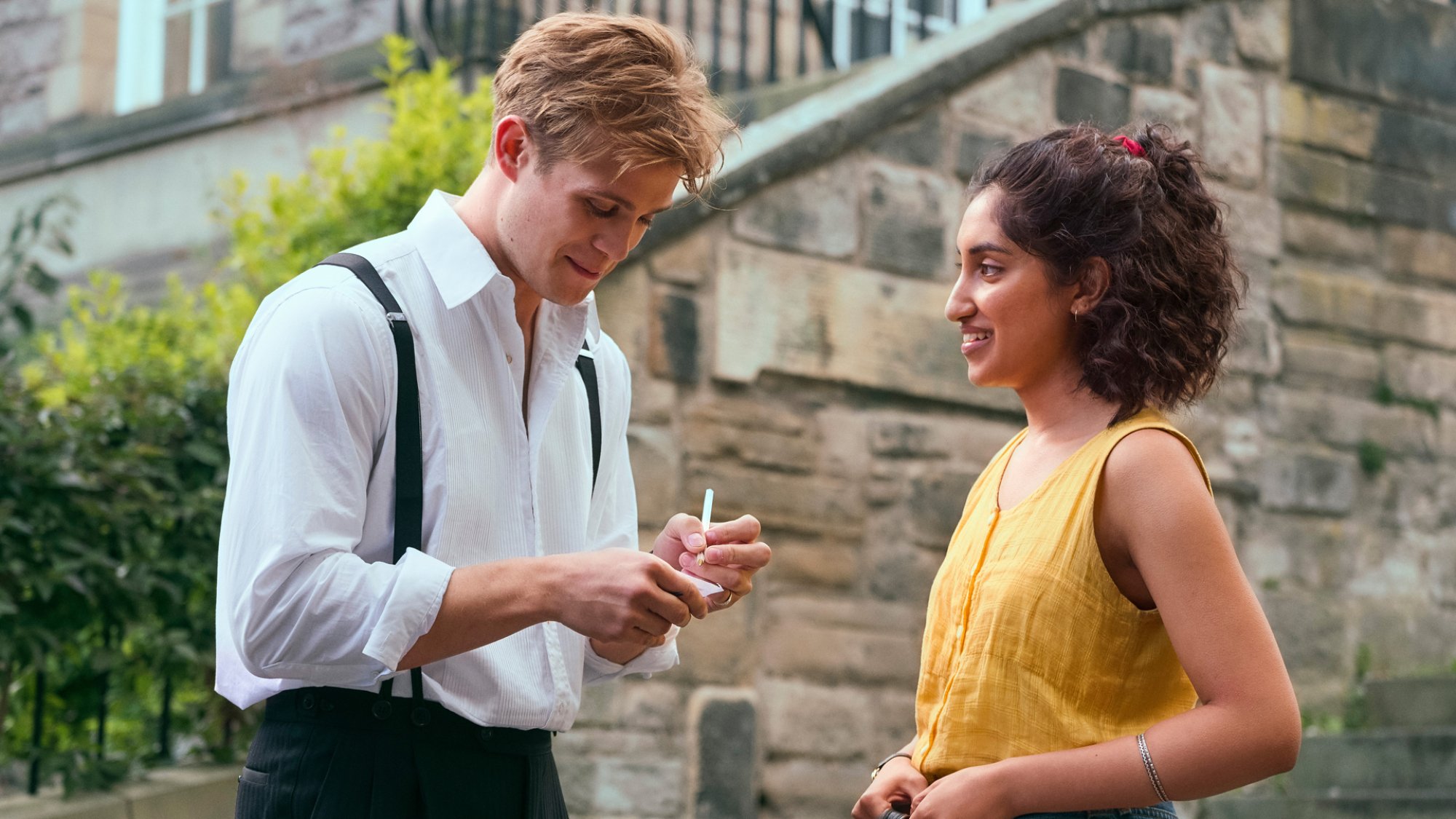
Initially set in Edinburgh in 1988, One Day begins with two students: the studious, creative, self-doubting Emma Morley (Mod) and the popular, aimless, charming Dexter Mayhew (Woodall). She’s from Leeds, he’s from London. She wants to make a difference in the world, he wants to travel and mess about. She thinks he’s vain, he thinks she’s rude. And they instantly connect.
Em and Dex decide on friendship after semi-platonically spending their last night of university together. However, it is, as Emma reads from Charles Dickens’s Great Expectations, their “one day” together that changes it all, as the quote goes about life: “Imagine one selected day struck out of it, and think how different its course would have been.”
From here, One Day tracks almost two decades from the late ’80s to the mid ’00s, picking up with Emma and Dexter each year precisely on their meeting date, July 15. The series format offers the story more room to breathe than it had in Lone Scherfig’s 2011 film adaptation. Instead, the seven-hour, 14-episode epic uses the novel’s annual time jumps as natural launchpads for the show’s structure.
One Day makes a miraculous marathon of the “friends-to-lovers” trope.
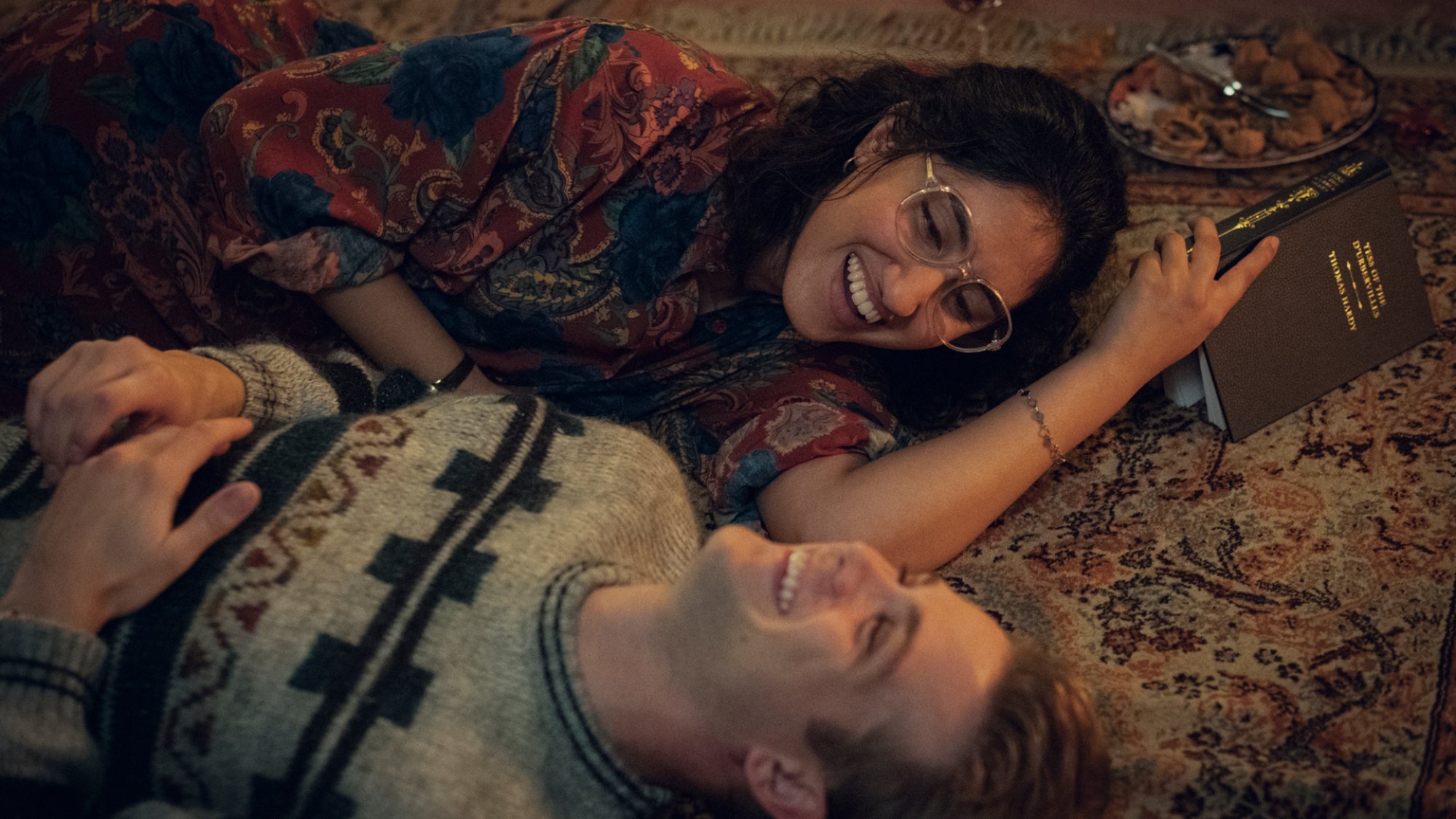
For romance fans, the friends-to-lovers trope is often a deeply satisfying journey, especially for those who love a long game. It’s the stuff of Jane Austen — years and years of longing and confusion, disappointment and fear with maximum pay-off. The antithesis to rom-coms all about a brief chase, romantic dramas like One Day embrace earth-shattering, everyday longevity. Prime examples include Richard Linklater’s Before series, Past Lives, The Notebook, When Harry Met Sally…, and Normal People. K-dramas have always done long love to perfection, from Twenty-Five Twenty-One to Marry My Husband. The slow-burn romance has also become a signature move for the TV sitcom, from The Office‘s Jim and Pam to Abbott Elementary’s Janine and Gregory.
Netflix’s One Day joins the marathon and increases the timespan, spanning nearly two decades over the course of its 14 episodes. Notably, the series examines the construct of “bad timing” in relationships in general, the self-woven delusion of infinite possibility and time with the people we love, and the brutal inevitability of impermanence.
Ambika Mod and Leo Woodall are magnetic.

As Nicholls’s beloved protagonists Dexter and Emma, Woodall and Mod will make you fall head over heels with their unrelenting chemistry and electric performances that feel both comfortable and bristling with suppressed desire. Despite leading separate lives with different needs — Dex seeks fame and instant gratification, while Emma seeks personal satisfaction — these two can’t extract each other from their system. It’s Eternal Sunshine of The Spotless Mind-levels of inevitability, their connection to each other.
Running through the ’80s, ’90s, and ’00s, that timespan alone is a major challenge for the cast, having to develop their characters slowly but surely through their early twenties to late thirties — a time period in which your whole being can be put through the proverbial wringer. Mod and Woodall move their characters through youthful exuberance and nervousness to jaded maturity seamlessly, all while gleefully giving each other as much crap as possible. It’s a tough job, but Woodall and Mod maintain this authenticity through various haircuts and style changes.
Like Normal People‘s Marianne and Connell, Em and Dex know each other better than anyone and pull each other back from the brink. Self-preservation through roasting each other actually becomes the honesty they both crave. Dex’s chill infuriates Emma, while Emma’s self-flagellation bewilders Dex. They’re the constant voice on the other end of the telephone through flings, affairs, career highs and lows, overseas adventures, and moments of deep loss and darkness. (An interesting way to track the passage of time is through the sorts of phones they use to stay connected, from pay phones and landlines to newfangled mobiles.)
But one of the best elements of Nicholls’s novel, and in turn, the Netflix series, is that Emma and Dexter are allowed to live full lives independently, with their connection drawing out the best in each other (or reminding them of it).

Quite simply, Mod is truly outstanding as the deeply relatable Emma. Perpetually cynical and suspicious of frivolity for its own sake, Emma consistently describes herself as “boring” despite being anything but. Mod’s deadpan delivery of Emma’s relatable awkwardness and endless ability to eviscerate anyone with words is downright hilarious. She’s also an expert at internalised longing, as Emma solidifies her emotional shield with Dex and refuses to be “the consolation prize” in his life.
The series makes space for Mod and Woodall to navigate important scenes as Emma struggles with her feelings of disconnectedness with Dex, particularly as they herald from different social classes — Dex from the realms of inherited wealth, Em from a working-middle class family. Dex shows a flippant attitude to money around Emma, who works for every penny.
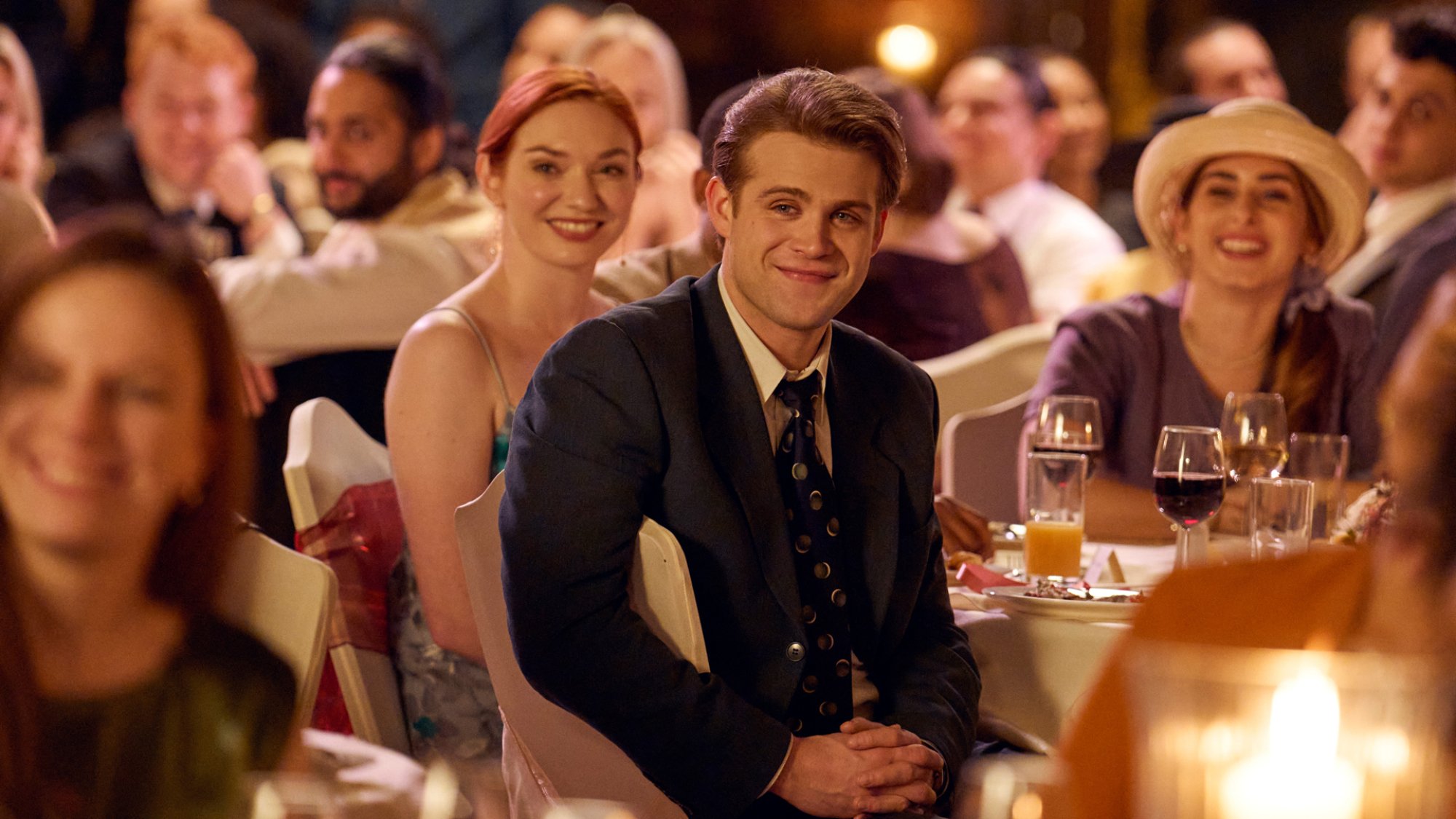
In Woodall’s hands, Dex proves a complex young man, the life of all parties but never feeling quite anchored in any part of his life. He’s struggling to figure himself out, including how he feels about Emma, and vacillating between a place of privilege, charm, and serenity to despair and depression. Woodall delivers a wildly ranged performance, with a standout moment involving a terrible day and an answering machine message for Emma. It completely devastated me, and it’s not the only moment for Dex like this.
One Day celebrates life’s different chapters instead of happily-ever-afters.
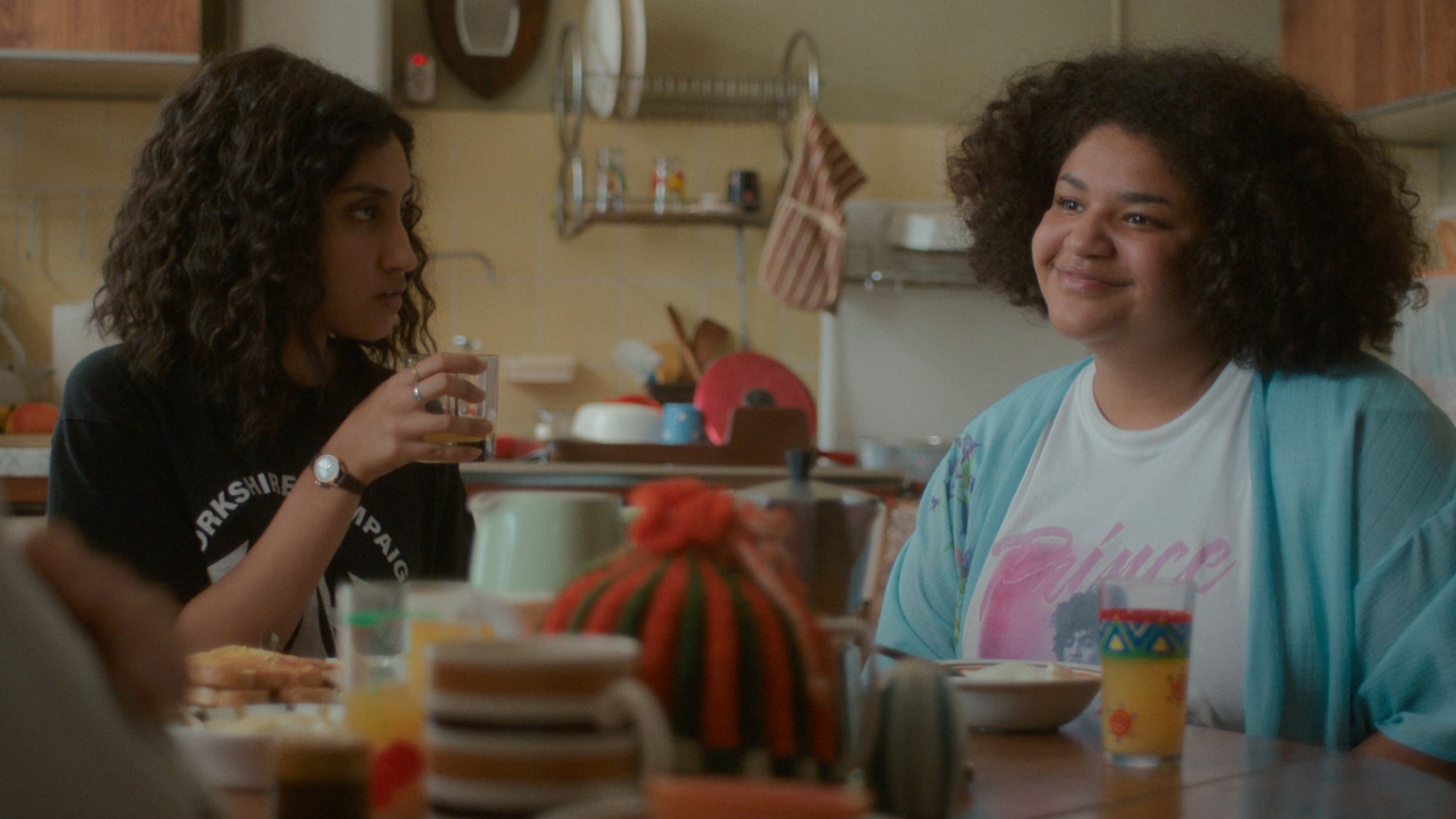
Through an array of characters and narrative twists, One Day champions different chapters in people’s lives, not just a whirlwind romance with a requisite happy ending. Em and Dex consistently fail and succeed, with and without each other, as do the people in their lives. It’s a beautiful human reminder that every day is an opportunity to process the past and keep it close while starting something new. As well as some of the bigger life moments, the show really focuses on the minute but monumental acts of kindness, sadness, beauty, pain, and connection that define our lives, all amplified by Anne Nikitin, Jessica Jones, and Tim Morrish’s gorgeous score.
Equally tasked with authentically developing their characters over two decades, One Day‘s supporting cast is just as brilliant. From Amber Grappy as Emma’s ever-supportive best friend Tilly to Essie Davis as Dexter’s glamorous mother Alison, the ensemble’s own arcs allow the leads to flourish. Importantly, One Day doesn’t treat Emma and Dexter’s romantic relationships with other people as distractions from the narrative, instead imbuing characters like Ian (Emma’s flailing stand-up comedian colleague, played by Jonny Weldon) as fully formed chapters of the protagonists’ lives.
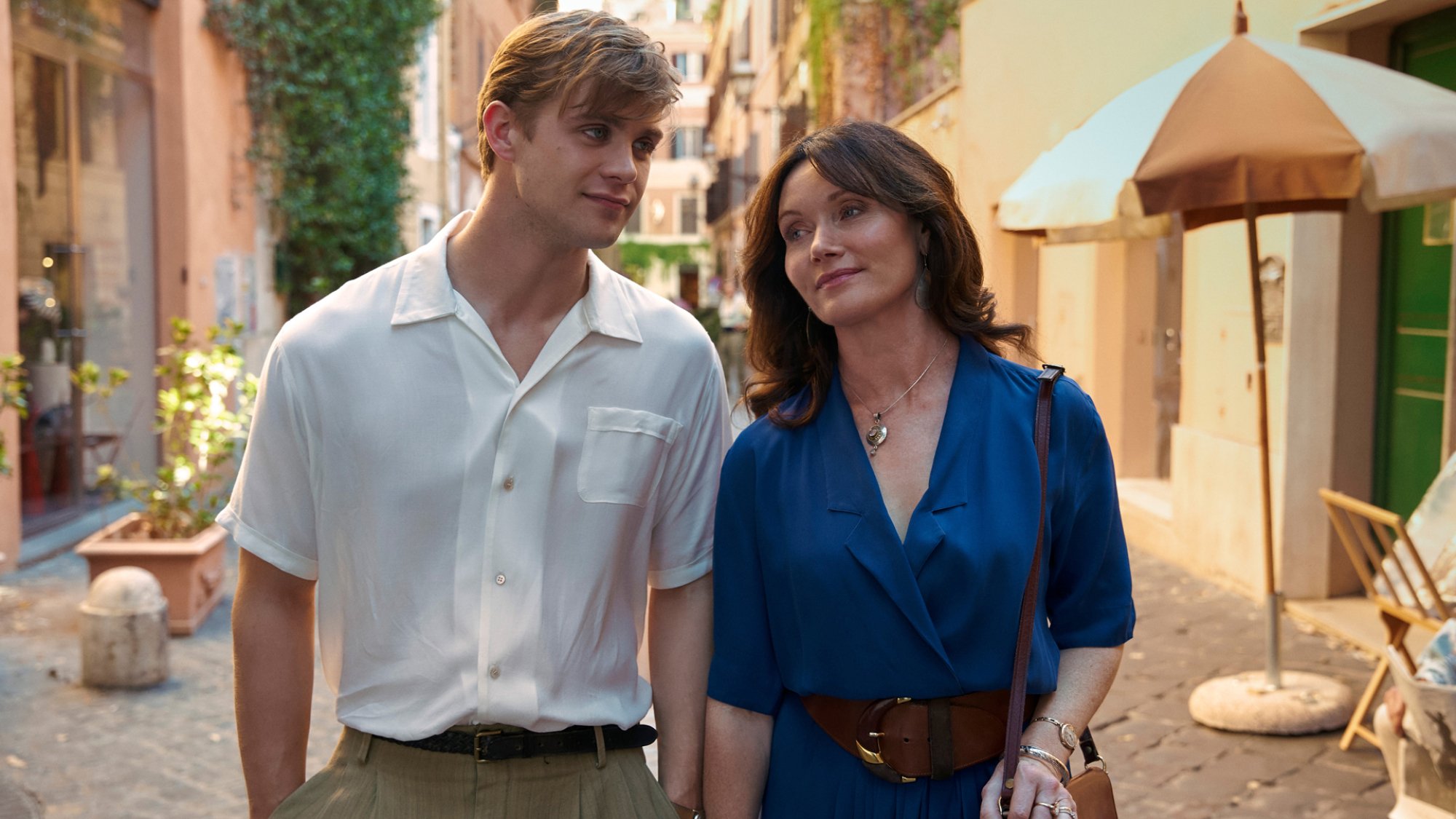
Unlike the future promise of the show’s two titular words, there’s no one moment when things become sublime, perfect, or what we expect of our lives. Each episode, knowing you’ll meet up with the characters exactly a year later, is compelling stuff, as we can never quite tell where Emma and Dexter have ended up this time — together or apart. What a difference a year makes, and all that.
Ultimately, One Day is about the people we really, truly take a chance on, for whom we give our whole, flawed hearts, that see us through our worst days, our better days, through grief, success, joy, embarrassment, arguments, and dreams. Most of all, it’s for the people we grow up with.
